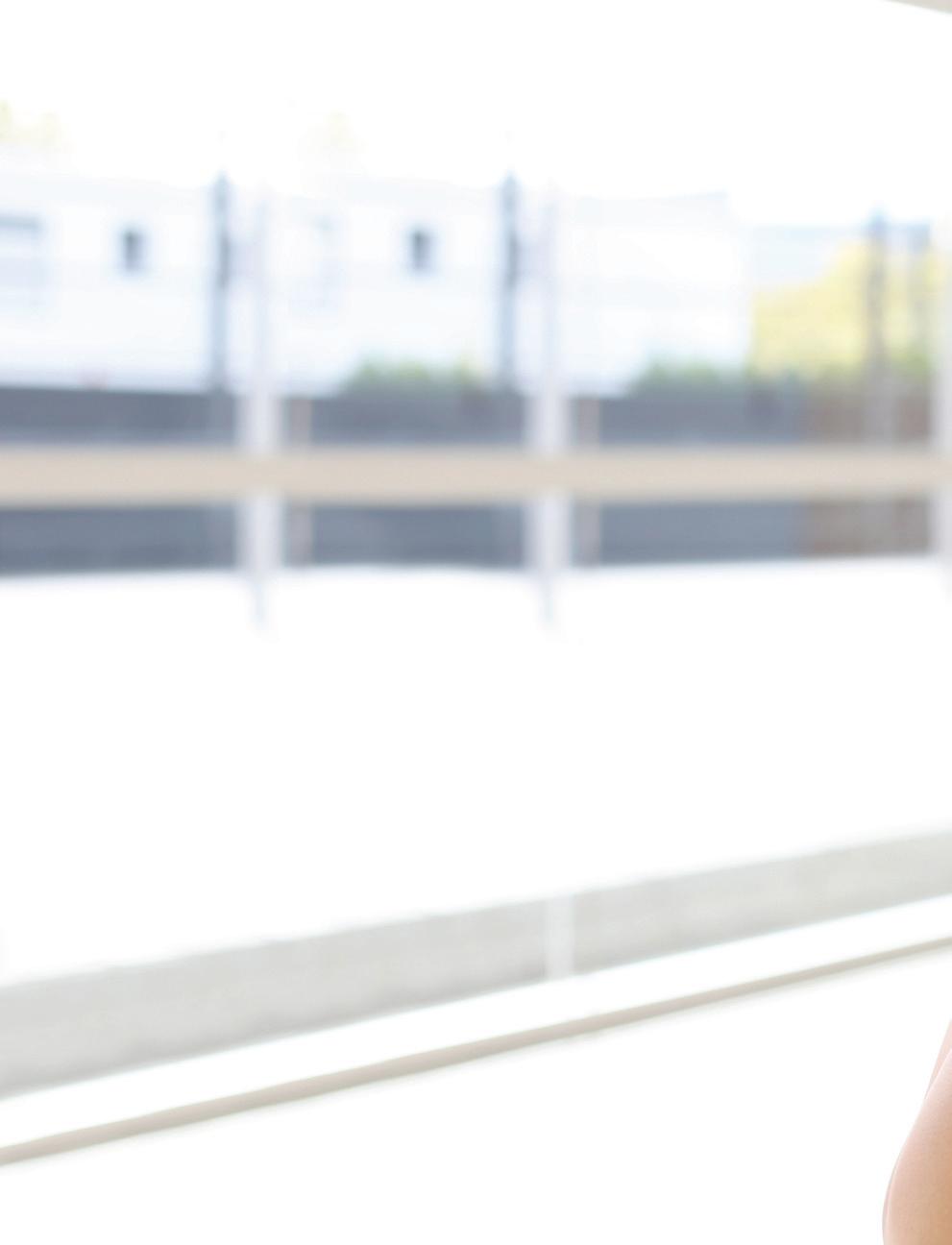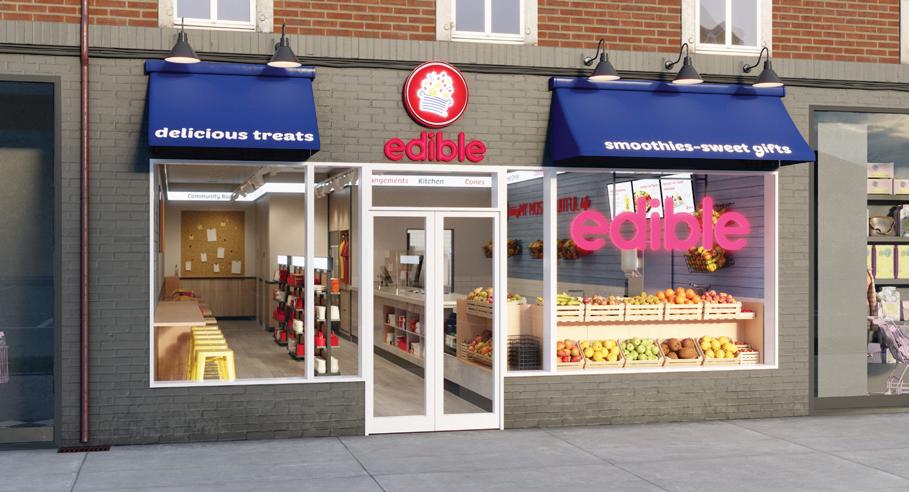
10 minute read
flexibility, safety and cost effectiveness are the hallmarks of the modern Business World
there’s no question this year has been so unprecedented that it will change the way we work and do business forever.
Throughout the world entrepreneurs, employees, and customers have been affected. In the coworking and rentable office space sector we have seen vast changes that are set to permanently change the way the industry relates to the worker and the business owner. In simple terms, coworking is not working. Period.
When the pandemic hit, many businesses closed their doors and no one was interested in working in a coworking space even if they could. We are now nearing the end of the year and worker and business sentiment hasn’t changed much when it comes to the way we have worked since the start of the pandemic. The office space is seen differently today; it’s no longer a viable option for people to engage in work every day or as a place to collaborate as a group. Employees and employers have adapted to new routines, new ways of being efficient and effective, and their expectations for the workplace will be different. The sudden shift in workplaces is opening the eyes of business owners and making them wonder if the cost of maintaining an office space is worth it, especially as remote work has shown that there is potential to save on obvious expenses like rent, utilities, furniture, cleaning services, and more. This is exactly why we are expecting a great interest and increase in the demand for virtual assistants, call answering services, and
rentable private offices and conference rooms.
COVID-19 has proved that the normal coworking communal space isn’t working and really never was popular. Business owners, employees, and clients coming into rentable office spaces will be wanting a more private setting where they can work and focus on tasks. Social distancing concerns have changed the layout of offices and has increased the need for private spaces. Employees will demand the right to be safe where they work and some are now simply going to expect to work in a more private setting. On the other hand, business owners wanting to decrease costs are surely thinking of ways to minimize their rent payments or get rid of them entirely. Businesses that are spending a large chunk of their budget on rent are finding that virtual assistants, rentable office space, and phone calling services are the way to go.
Even before the pandemic hit, coworking and open office spaces were crowded and full of the distractions that are inevitable when working around other people. With people now working from home, many businesses and employees have proven that they can be just as productive at home

as they can be in a coworking situation. Working from home is now a viable option for many businesses and employees, but these past few months have shown us that this new workspace presents its own set of distractions and challenges. Employees have families, are working uncomfortably out of their dining rooms, or maybe can’t focus from the comforts of home. While people and businesses are starting to adjust to the work from home realities, they are also beginning to see that an office space is still needed, just not in the same capacity as before the pandemic.
With most people working in a new way, even though it was forced on some, it has a newer generation of business owners and employees praising the fact that they can focus on what is most important to them, the bottom line of their business without needing a permanent four wall structure to go to or pay for. The convenience of renting a mailbox for your company, being able to schedule conference rooms and office space without a long term lease, and having other people focusing on answering client calls or setting up appointments will be the norm as we continue to move forward.
During this pandemic we have seen that there is still the need for us to have the face-to-face business interaction. It’s one of the positive points coworking has going for it. Employees and employers can meet as needed to maximize the efficiency of meetings, interactions, and collaborations. Even while working from home, socialization is still an important part of employee and employee/employer relationships. Collaboration and other social interactions may be manageable virtually, but it can still be better to use a private office space to really ensure a productive use of time. Plus, it provides a break from the distractions we’ve come to recognize while working from home. Rentable private offices enable small businesses to do this in a safe and productive way without the business owners having to buy property or commit to a long term lease. This draws costs away from a traditional office but still provides employees with the support and systems when they need it.
Brian farris

are the hallmarks of the new modern business world. When you have a distributed workforce, flexibility is crucial, and while some employees will flourish working from home, others will need a place to go to get the job done. The flexible office space was made for the modern business owner, especially now. It allows for a productive environment and the professional support needed to get tasks done so business owners can have the freedom to focus on what actually matters for them. The pandemic has certainly shaken things up, but is also proving some business models are more resistant than others. The world was already headed in this direction, with a focus on virtual assistants and private rentable offices, but it has certainly been sped up dramatically. The coming years will showcase who has been able to increase their technology capabilities for entrepreneurs and workers who have embraced new office trends or we will see who will continue to try to market their way through to keep their old models alive.
Brian Farris is Brand President of Intelligent Office and is responsible for the strategic vision and development of the brand. Intelligent Office provides private and productive offices and meeting space along with customized virtual administrative and phone answering services so small business owners and entrepreneurs can spend less on fixed costs like leases, administrative and IT related support staff. With 57 locations open, Intelligent Office offers a variety of virtual services including phone answering services, appointment scheduling services, and a virtual
every industry was hit hard this past year due to the global pandemic. From gyms, retail, food and beverage, and everything in-between, hard decisions had to be made.
Something that a lot of these concepts share in common is that they are franchises. After the devastation the economy saw these last few months many are wondering: is franchising still a thing?
tough economic times and Franchising models - can they Still Work together?
The key to success in franchising is finding an industry and model that is not only

prevalent now, but will continue to thrive during hard economic times. According to Franchise Business Review, franchises within the janitorial, food, child services, and car repair industries are among the top recession proof concepts. Franchisees and franchisors need to find out what the consumer wants to spend their money on when they are on a budget.
FRANCHISINg DuRINg A PANDEMIC – IS IT A SMART MOVE?
Even during a recession, there are few things that people refuse to give up regardless of external influence, and at the top of the list is coffee. Throughout the pandemic, coffee shops were lucky enough to not only stay afloat, but thrive. This is no doubt thanks to the cult following of the caffeinated beverage. Franchises that offer these goods are more likely than other concepts to continue to prosper and have proved their survivability, making them an ideal investment.
Because of the health guidelines put in place because of COVID, it added a whole new hurdle to franchising during hard economic times. Prior to coronavirus, there was never a time where businesses had to shut down their lobbies. So, it makes sense that models with drive-thru prototypes were in a better place to take on COVID than those without, and PJ’s Coffee experienced it firsthand. PJ’s Coffee has been able to make guests feel safe, while still providing their notable southern charm thanks to its newer focus on drivethrus at their cafes. Drive-thrus enable the customer to still enjoy a cup of coffee or pastry without going inside and exposing themselves to the virus.
Essentially, this is a product consumed out of habit and behavior and if we can offer them a contactless purchasing option, the franchise model can most certainly still work, and did. Coffee is recession resistant and PJ’s Coffee proved franchising models in this industry can succeed regardless of the economic climate, as long as they are willing to put in the work.
Start at Square one – Supporting your People
The main benefit of being a franchisee during tough economic times is having the support from the franchisor, compared to mom-and-pop shops that do not have the marketing and operational support of an experienced national brand. Specifically, the PJ’s Coffee corporate team was one step ahead and kept their franchisees in the know at all times.
At PJ’s Coffee, we consider our franchisees family. We know when their children’s birthdays are, check-in to see how that vacation was, and give a call because we care. We’re a family run business - family is at our core. So, when COVID hit, we knew operational changes had to be made to ensure our franchisees would continue to thrive.
The first step to maintaining success was providing our franchisees with proper guidance. PJ’s created a process to deal with new operational procedures, like how to maintain a six-foot distance at all times and how to properly sanitize the store to meet COVID-19 requirements. The condiment stands were completely removed, requiring all customization requests to be carried out by baristas and sanitization stations were swiftly rolled out to all locations. PJ’s Coffee also provided webinars aimed at showing franchisees the process to obtain the PPP loan. These resources are still being provided and will continue for as long as necessary. If a franchisee is supported, they can provide that same comfort to their own employees. It is crucial for everyone, from the top down, to feel like someone has your back, and that will continue long past COVID.
What Prospective Franchisees Should Look out for When deciding on a Franchise
Just like any other business venture, deciding to open a franchise is an investment – not only financially, but a timely one as well. So, what are things potential franchisees should seek when deciding what franchise to invest in?
It is imperative to look into the company’s past decisions and outcomes of crises, economic hardships, and any other challenges that face the brand. Additionally, it is import to talk to current franchisees and get their insight and thoughts on the franchise as a whole, because the corporate team may have great things to say, but the franchisees are walking the walk.
Not only should a prospective franchisee look at the culture of the brand, but they should also look at the specific industry’s consumer behavior. Is this concept feeding to the consumer’s longterm needs and wants? Or is the concept a trend or fad that will not have legs 10 years down the road?
At the end of the day any investment should be smart, but it should also be met with passion. If a franchisee cannot fully immerse themselves in the company and express their upmost excitement and love for the brand, it may not be a fit. Ryan Stansbury currently serves as the Vice President of Franchise Development for PJ’s Coffee of New Orleans. Prior to being promoted to his current role in 2019, Stansbury served as the Franchise Development Director for all of Ballard Brands, LLC., for nine years. With over 15 years of franchise development experience, Stansbury’s primary responsibility is to facilitate domestic and international growth for a portfolio of retail brands. In February 2007, Mr. Stansbury received the designation of Certified Franchise Executive (CFE) by the International Franchising Association for his work and study in the franchise industry and has maintained that designation to date. www.pjsfranchise.com









